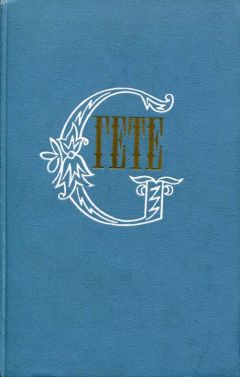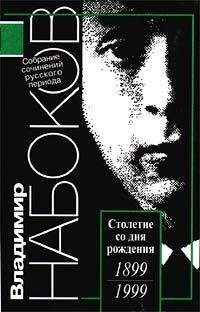Владимир Набоков - Здесь говорят по-русски.
"And we did. First we got hold of some stout rope, and plugged his mouth with a towel. While we were working on him he came to and opened one eye. Upon closer examination, let me tell you, the mug turned out to be not only repulsive but stupid as well-some kind of mange on his forehead, mustache, bulbous nose. Leaving him lying on the floor, Petya and I settled down comfortably nearby and started a judicial inquiry. We debated for a good while. We were concerned not so much with the affront itself-that was a trifle, of course-as much as with his entire profession, so to speak, and with the deeds he had committed in Russia. The defendant was allowed to have the last word. When we relieved his mouth of the towel, he gave a kind of moan, gagged, but said nothing except 'You wait, you just wait. . . .' The towel was retied, and the session resumed. The votes were split at first. Petya demanded the death sentence. I found that he deserved to die, but proposed substituting life imprisonment for execution. Petya thought it over and concurred. I added that although he had certainly committed crimes, we were unable to ascertain this; that his employment in itself alone constituted a crime; that our duty was limited to rendering him harmless, nothing more. Now listen to the rest.
"We have a bathroom at the end of the corridor. Dark, very dark little room, with an enameled iron bathtub. The water goes on strike pretty often. There is an occasional cockroach. The room is so dark because the window is extremely narrow and is situated right under the ceiling, and besides, right opposite the window, three feet away or less, there's a good, solid brick wall. And it was here in this nook that we decided to keep the prisoner. It was Petya's idea-yes, yes, Petya, give Caesar his due. First of all, of course, the cell had to be prepared. We began by dragging the prisoner into the corridor so he would be close by while we worked. And here my wife, who had just locked up the shop for the night and was on her way to the kitchen, saw us. She was amazed, even indignant, but then understood our reasoning. Docile girl. Petya began by dismembering a stout table we had in the kitchen-knocked off its legs and used the resulting board to hammer shut the bathroom window. Then he unscrewed the taps, removed the cylindrical water heater, and laid a mattress on the bathroom floor. Of course next day we added various improvements: we changed the lock, installed a deadbolt, reinforced the window board with metal-and all of it, of course, without making too much noise. As you know, we have no neighbors, but nonetheless it behooved us to act cautiously. The result was a real prison cell, and there we put the GPU chap. We undid the rope, untied the towel, warned him that if he started yelling we would reswaddle him, and for a long time; then, satisfied that he had understood for whom the mattress had been placed in the bathtub, we locked the door and, taking turns, stood guard all night.
"That moment marked the beginning of a new life for us. I was no longer simply Martin Martinich, but Martin Martinich the head warden. At first the inmate was so stunned by what had happened that his behavior was subdued. Soon, however, he reverted to a normal state and, when we brought his dinner, launched into a hurricane of foul language. I cannot repeat the man's obscenities; I shall limit myself to saying that he placed my dear late mother in the most curious situations. It was decided to inculcate in him thoroughly the nature of his legal status. I explained that he would remain imprisoned until the end of his days; that if I died first I would transmit him to Petya like a bequest; that my son in his turn would transmit him to my future grandson and so forth, causing him to become a kind of family tradition. A family jewel. I mentioned in passing that, in the unlikely eventuality of our having to move to a different Berlin flat, he would be tied up, placed in a special trunk, and would make the move with us easy as pie. I went on to explain to him that in one case only would he be granted amnesty. Namely, he would be released the day the Bolshevik bubble burst. Finally I promised that he would be well fed-far better than when, in my time, I had been locked up by the Cheka-and that, by way of special privilege, he would receive books. And in fact, to this day I don't believe he has once complained about the food. True, at first Petya proposed that he be fed dried roach, but search as he might, that Soviet fish was unavailable in Berlin. We are obliged to give him bourgeois food. Exactly at eight every morning Petya and I go in and place by his tub a bowl of hot soup with meat and a loaf of gray bread. At the same time we take out the chamber pot, a clever apparatus we acquired just for him. At three he gets a glass of tea, at seven some more soup. This nutritional system is modeled on the one in use in the best European jails.
"The books were more of a problem. We held a family council for starters, and stopped at three titles: Prince Serebryaniy, Krylov's Fables, and Around the World in Eighty Days. He announced that he would not read those 'White Guard pamphlets,' but we left him the books, and we have every reason to believe that he read them with pleasure.
"His mood was changeable. He grew quiet. Evidently he was cooking up something. Maybe he hoped the police would start looking for him. We checked the papers, but there was not a word about the vanished Cheka agent. Most likely the other representatives had decided the man had simply defected, and had preferred to bury the affair. To this pensive period belongs his attempt to slip away, or at least to get word to the outside world. He trudged about his cell, probably reached for the window, tried to pry the planks loose, tried pounding, but we made some threat or other and the pounding ceased. And once, when Petya went in there alone, the man lunged at him. Petya grabbed him in a gentle bear hug and sat him back in the tub. After this occurrence he underwent another change, became very good-natured, even joked on occasion, and finally attempted to bribe us. He offered us an enormous sum, promising to obtain it through somebody. When this did not help either, he started whimpering, then went back to swearing worse than before. At the moment he is at a stage of grim submissiveness, which, I'm afraid, bodes no good.
"We take him for a daily walk in the corridor, and twice a week we air him out by an open window; naturally we take all necessary precautions to prevent him from yelling. On Saturdays he takes a bath. We ourselves have to wash in the kitchen. On Sundays I give him short lectures and let him smoke three cigarettes-in my presence, of course. What are these lectures about? All sorts of things. Pushkin, for instance, or Ancient Greece. Only one subject is omitted-politics. He is totally deprived of politics. Just as if such a thing did not exist on the face of the earth. And you know what? Ever since I have kept one So-
viet agent locked up, ever since I have served the Fatherland, I am simply a different man. Jaunty and happy. And business has looked up, so there is no great problem supporting him either. He costs me twenty marks or so a month, counting the electric bill: it's completely dark in there, so from eight a.m. to eight p.m. one weak lightbulb is left on.
"You ask, what milieu is he from? Well, how shall I put it. ... He is twenty-four years old, he is a peasant, it is unlikely that he finished even a village school, he was what is called 'an honest Communist,' studied only political literacy, which in our book signifies trying to make blockheads out of knuckleheads-that's all I know. Oh, if you want I'll show him to you, only remember, mum's the word!"
Martin went into the corridor. Petya and I followed. The old man in his cozy house jacket really did look like a prison warden. He produced the key as he walked, and there was something almost professional in the way he inserted it in the lock. The lock crunched twice, and Martin threw open the door. Far from being some ill-lit hole, it was a splendid, spacious bathroom, of the kind one finds in comfortable German dwellings. Electric light, bright yet pleasing to the eye, burned behind a merry, ornate shade. A mirror glistened on the left-hand wall. On the night table by the bathtub there were books, a peeled orange on a lustrous plate, and an untouched bottle of beer. In the white bathtub, on a mattress covered with a clean sheet, with a large pillow under the back of his head, lay a well-fed, bright-eyed fellow with a long growth of beard, in a bathrobe (a hand-me-down from the master) and warm, soft slippers.
"Well, what do you say?" Martin asked me.
I found the scene comical and did not know what to answer. "That's where the window used to be," Martin indicated with his finger. Sure enough, the window was boarded up to perfection.
The prisoner yawned and turned toward the wall. We went out. Martin fondled the bolt with a smile. "Fat chance he'll ever escape," he said, and then added pensively, "I would be curious to know, though, just how many years he'll spend in there. ..."




